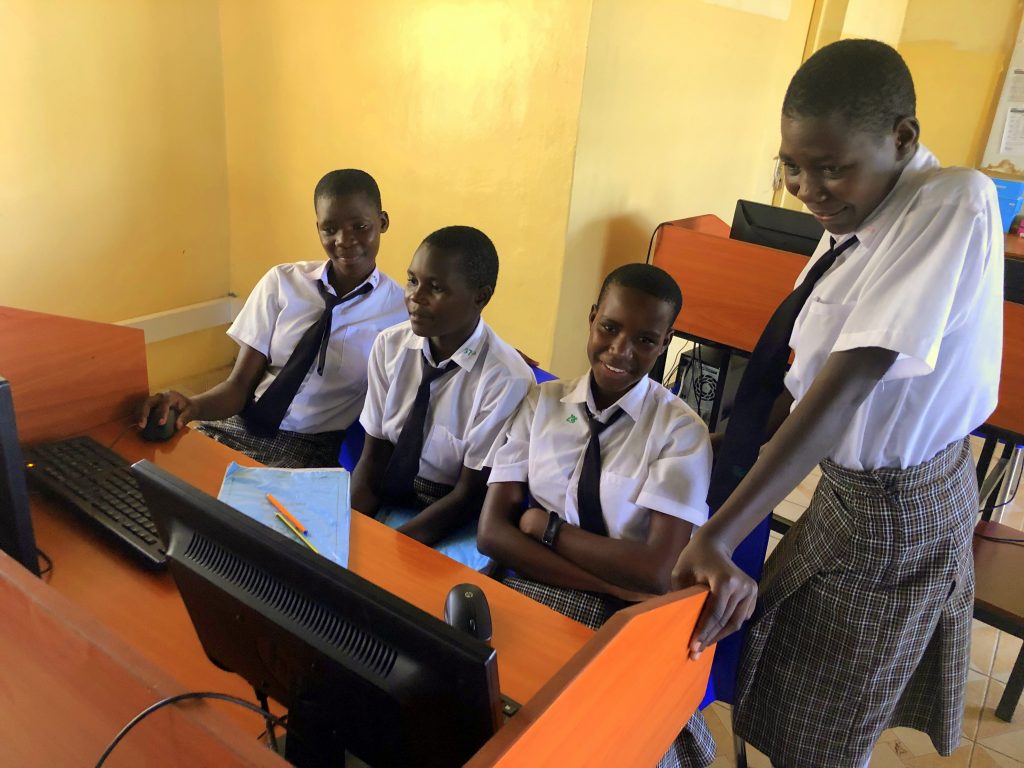advertisement
Wiser helps Kenyan rural students to builds a future with STEM education
Months into completing her high school diploma, one Nimone Odeka got employed as the only female mathematics teacher at a…

Months into completing her high school diploma, one Nimone Odeka got employed as the only female mathematics teacher at a girls secondary school in her rural home in Muhuru Bay, of West Kenya.
The joy of her new job would however thin out soon due to the many odds faced at the school; odds against both her and the students.
Parents were mostly unable or unwilling to financially support their daughters, forcing many girls to often get to transactional sex in order to obtain the health resources, school fees, and even sanitary pads that are basic for their stay in school.
advertisement
A not for profit organisation, WISER International, would then cross her path and replenish her dying dream into even a bigger vision for the girl child especially those in the remote areas.
WISER provides quality education to girls in rural Kenya, with a particular focus on STEM and health education. Prior to joining WISER’s holistic education program—which goes beyond scholarship—Odeka recalls a future that seemed “doubtful.”
Her parents struggled to make ends meet and take care of her and her siblings, so Odeka—hungry and persistent—actively sought out other options. She had applied for aid through WISER during her education. Her family she says, was not privileged enough to afford upkeep alongside her education needs.
advertisement
“If not for WISER, I would not have gotten beyond primary education,” says Odeka, adding; “Primary education is almost free which is all my family can afford.”
In rural Migori County, where WISER is based, only 7 percent of girls complete secondary school due to child pregnancy, child marriage, orphanhood from AIDS, poverty, or gender-based violence—reinforcing a common societal belief that girls are not worth educating. A 2008 study indicated that a staggering 50 percent of sexually active girls aged 10-16 in Muhuru Bay used transactional sex to obtain resources essential for education.
“Around the shores of Lake Victoria, you can find some of the highest rates of HIV in Kenya,” said Zachary Fowler, executive director of WISER. “Some estimates in Muhuru Bay list HIV prevalence as high as 1 in every 3 people. So, when girls are turning to transactional sex in order to obtain the resources they need to stay in school, you’re talking about young women who are, quite literally, willing to put their lives at risk to get an education.”
advertisement
This year, WISER received a Love on mini grant from the Lenovo Foundation. The grant will help ensure all WISER students have access to a computer science teacher in 2019.WISER’s computer science teacher, Edwin Okongo, not only provides hands-on instruction for all students in WISER’s on-campus computer lab, he also facilitates new technology-related experiences and opportunities for students outside of the classroom setting.
“In any area with poverty, you’re going to see access problems,” Okongo said.
Okongo further noted that poverty kills the morale, the desire to understand technical sciences. Society, on top of this, favors male students in access to computers, and even in the university statistics, most of those studying information technology are male. Giving this chance to the WISER Girls is a chance to expose a new generation of female students to computing technology that was denied to them.
The grant will also fund new ways to engage WISER alumni with STEM skills-building opportunities.For instance, the grant will allow WISER’s most recent alumni to participate in a month-long intensive computer skills course to build digital literacy as they prepare to start college.
Finally, the grant will provide the WISER Science and Engineering club with resources to empower girls through hands-on STEM education. The club is open to all WISER girls and offers opportunities to learn everything from introductory engineering principals to design thinking through alternative energy to practical applications of the scientific method.
WISER makes realities that once appeared utterly distant seem real and achievable for young girls. You can’t become what you can’t see. It’s important for young girls to see a different narrative lived by people they can relate to so they can feel confident to dream bigger for themselves, too. As Odeka shares, she found her passion for teaching when she began interacting with WISER teachers in the program. In the same way, Odeka hopes to inspire other girls in her community to dream fearlessly.
“I always tell girls my story on how I started my education and my background,” she says. “Though it was not that good, I know from a zero someone can become a hero.”
Since opening its doors in 2010, WISER has had six graduating classes with a 100 percent graduation rate. More than 93 percent of WISER alumni have gone on to pursue higher education and are making their mark across various fields.
“By providing young women in a hard-to-reach region with STEM experiences, you are doing more than offering an opportunity for hands-on learning and critical thinking—you are showing a girl that she is deserving of a future that may have otherwise been denied to her and opening doors to her future success,” Fowler concluded.